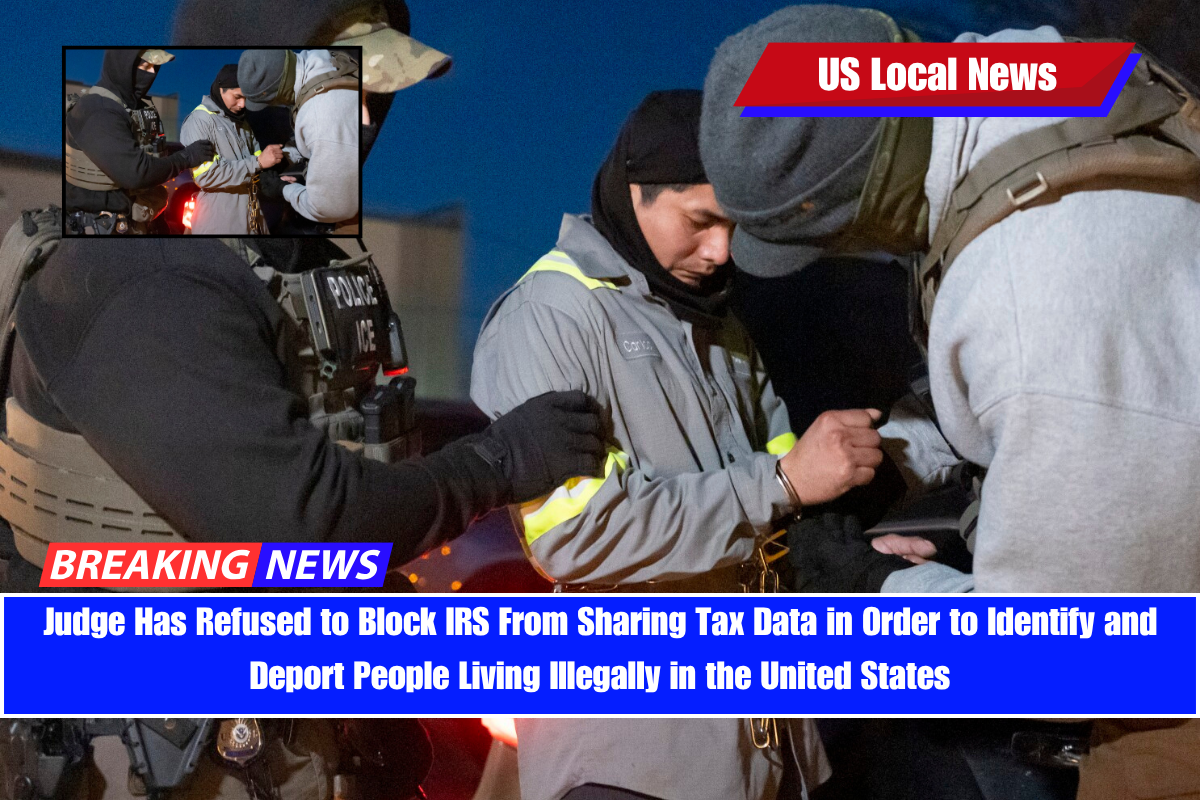In a significant ruling, a federal judge in the U.S. has said that the Internal Revenue Service (IRS) can share certain tax data with Immigration and Customs Enforcement (ICE) to help locate and deport undocumented immigrants. This decision supports President Donald Trump’s current immigration agenda, which includes stricter border control and deportation policies.
The case, filed by nonprofit groups, argued that even undocumented immigrants who pay taxes deserve the same privacy protections as U.S. citizens and legal immigrants. However, the court denied the request to block the IRS from cooperating with ICE.
Judge Says IRS Is Acting Within the Law
U.S. District Judge Dabney Friedrich, who was appointed by Trump, made it clear that the IRS is not breaking the law. She ruled that the agency is using already existing legal tools to share only certain types of data for criminal investigations.
Friedrich also clarified that the IRS has not changed its process for handling taxpayer data and is still following the Internal Revenue Code.
What Information Can the IRS Share?
According to the judge’s ruling, the IRS cannot give away full tax returns or detailed information submitted by taxpayers. But there are exceptions.
Here’s what ICE must provide to get any information from the IRS:
- Name and address of the person they are investigating
- Time period for which they need information
- The law that allows them to request it
- The reason the information is important to their investigation
The IRS can only release information it collects on its own (like during an audit), not what someone voluntarily submits, like their tax return. However, names, addresses, and tax ID numbers are not considered protected and can be shared.
Why Was This Case Filed?
The lawsuit came after a deal was made allowing ICE to send lists of immigrant names and addresses to the IRS for cross-checking with tax records. Critics say this is a way to target undocumented immigrants who are trying to do the right thing by paying taxes.
The deal caused internal issues at the IRS. In fact, former acting IRS Commissioner Melanie Krause resigned in protest. Another earlier commissioner also quit after Elon Musk’s Department of Government Efficiency gained access to taxpayer records, which caused a major public uproar.
Immigration Policy Under Trump
This decision is part of a larger effort by President Trump to increase immigration enforcement. His policies have already led to:
- More deportations
- Workplace immigration raids
- Use of 18th-century laws to deport certain groups, like Venezuelan migrants
The Treasury Department says working with ICE is meant to help with major criminal cases, not small immigration violations. But advocates and privacy experts say this is a slippery slope and could weaken privacy for all Americans, not just immigrants.
The lawyer for the nonprofit groups, Alan Butler Morrison, said they are disappointed but still reviewing options. He mentioned that the court’s decision still puts strict limits on how much the IRS can cooperate with ICE.
So far, ICE has not yet formally asked for any data, but the plaintiffs say they will keep a close eye to make sure the rules are followed.











Leave a Reply